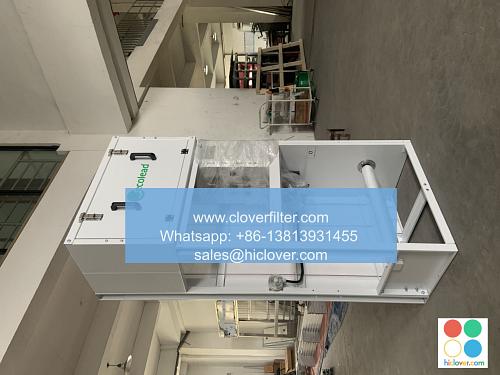Filtering Out the Noise: The Importance of Air Quality

Air quality has become a pressing concern in recent years, with the increasing awareness of the impact of air pollution on human health and the environment. The importance of air quality cannot be overstated, as it affects not only our well-being but also the energy efficiency and sustainability of our buildings and homes. In this article, we will explore the significance of air quality, its effects on human health, and the various application areas where air quality is crucial, including indoor air quality monitoring, air pollution control, and climate change mitigation.
The Impact of Air Pollution on Human Health
Air pollution is a major environmental risk factor for human health, responsible for an estimated 7 million premature deaths worldwide each year. The particulate matter (PM) in polluted air can cause a range of health problems, from respiratory diseases such as asthma and chronic obstructive pulmonary disease (COPD) to cardiovascular diseases and even neurological disorders. Furthermore, air pollution has been linked to an increased risk of lung cancer and other types of cancer. It is essential to monitor and control air quality to minimize the risks associated with air pollution.
Application Areas of Air Quality
Air quality is a critical factor in various application areas, including:
* Indoor Air Quality Monitoring: This involves monitoring the air quality inside buildings and homes to ensure a healthy and comfortable environment for occupants. Indoor air quality sensors can detect volatile organic compounds (VOCs), carbon monoxide, and other pollutants, enabling the implementation of effective indoor air quality control measures.
* Air Pollution Control: This involves using various technologies and strategies to reduce air pollution emissions from sources such as industrial processes, vehicles, and energy generation. Effective air pollution control measures can help minimize the impact of air pollution on human health and the environment.
* Climate Change Mitigation: Air quality is closely linked to climate change, as many air pollutants also contribute to global warming. Reducing air pollution emissions can help mitigate climate change by decreasing the amount of greenhouse gases in the atmosphere.
Technologies and Strategies for Improving Air Quality
Several technologies and strategies can be employed to improve air quality, including:
* Air Filtration Systems: These systems use air filters to remove pollutants and particles from the air, improving indoor air quality.
* Renewable Energy Sources: Transitioning to renewable energy sources such as solar and wind power can help reduce air pollution emissions from energy generation.
* Sustainable Urban Planning: Sustainable urban planning strategies, such as green infrastructure and pedestrian-friendly design, can help reduce air pollution emissions from transportation and industrial activities.
Conclusion
In conclusion, air quality is a critical factor that affects not only human health but also the energy efficiency and sustainability of our buildings and homes. By understanding the importance of air quality and implementing effective air quality monitoring and control measures, we can minimize the risks associated with air pollution and create a healthier and more sustainable environment for future generations. It is essential to prioritize air quality in various application areas, including indoor air quality monitoring, air pollution control, and climate change mitigation, to ensure a better future for all. You haven’t provided a question or topic for me to address. Please provide more context or information so I can give you a helpful and accurate response. What would you like to talk about or ask?

